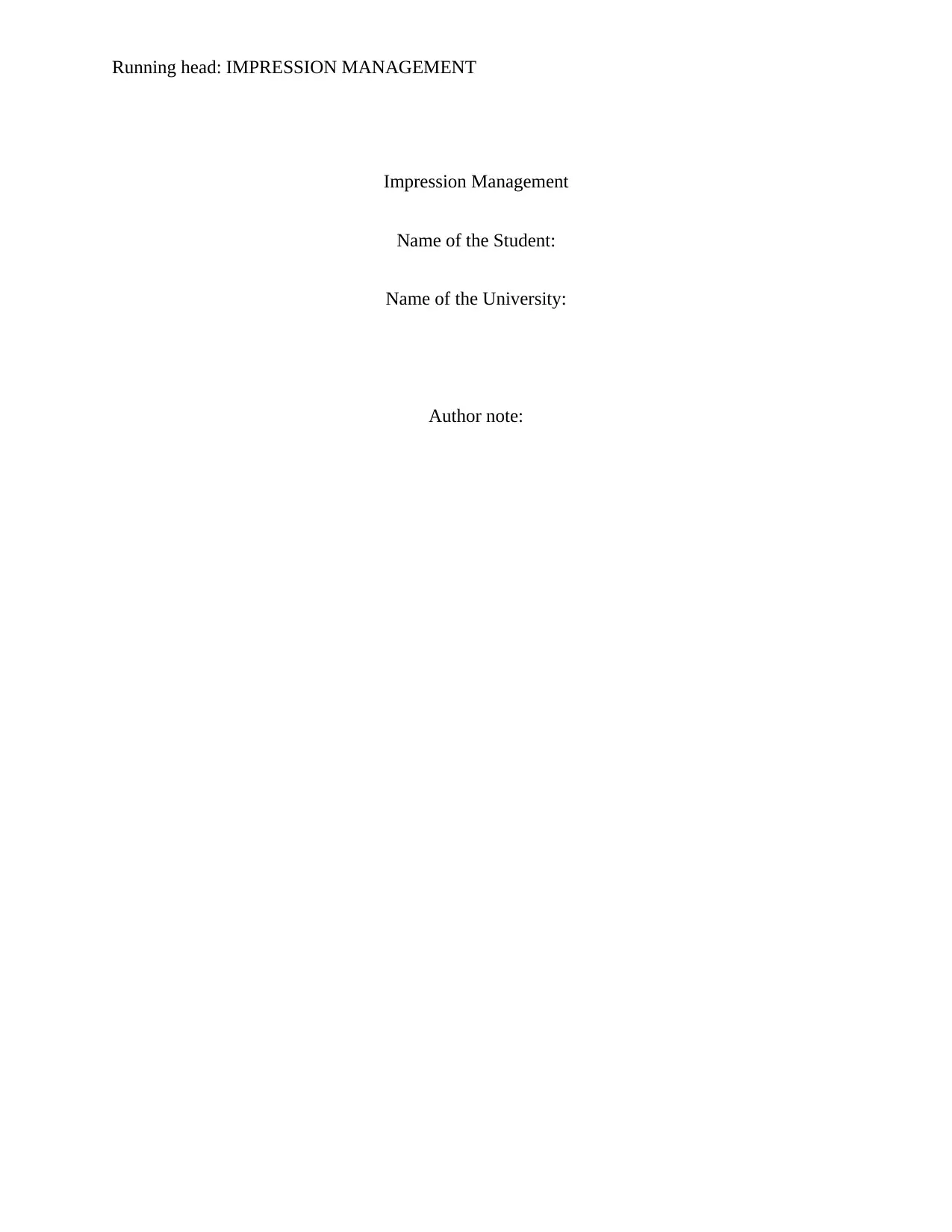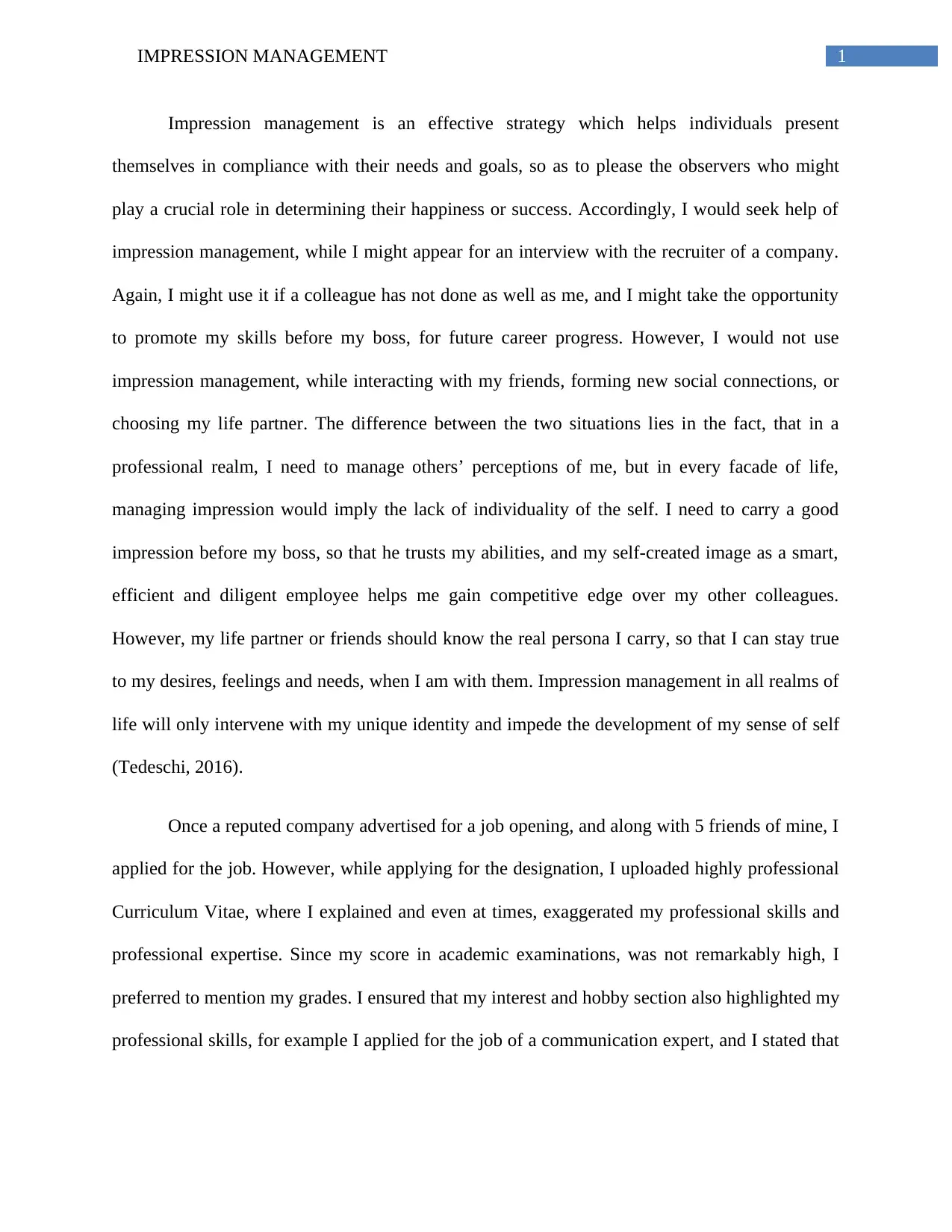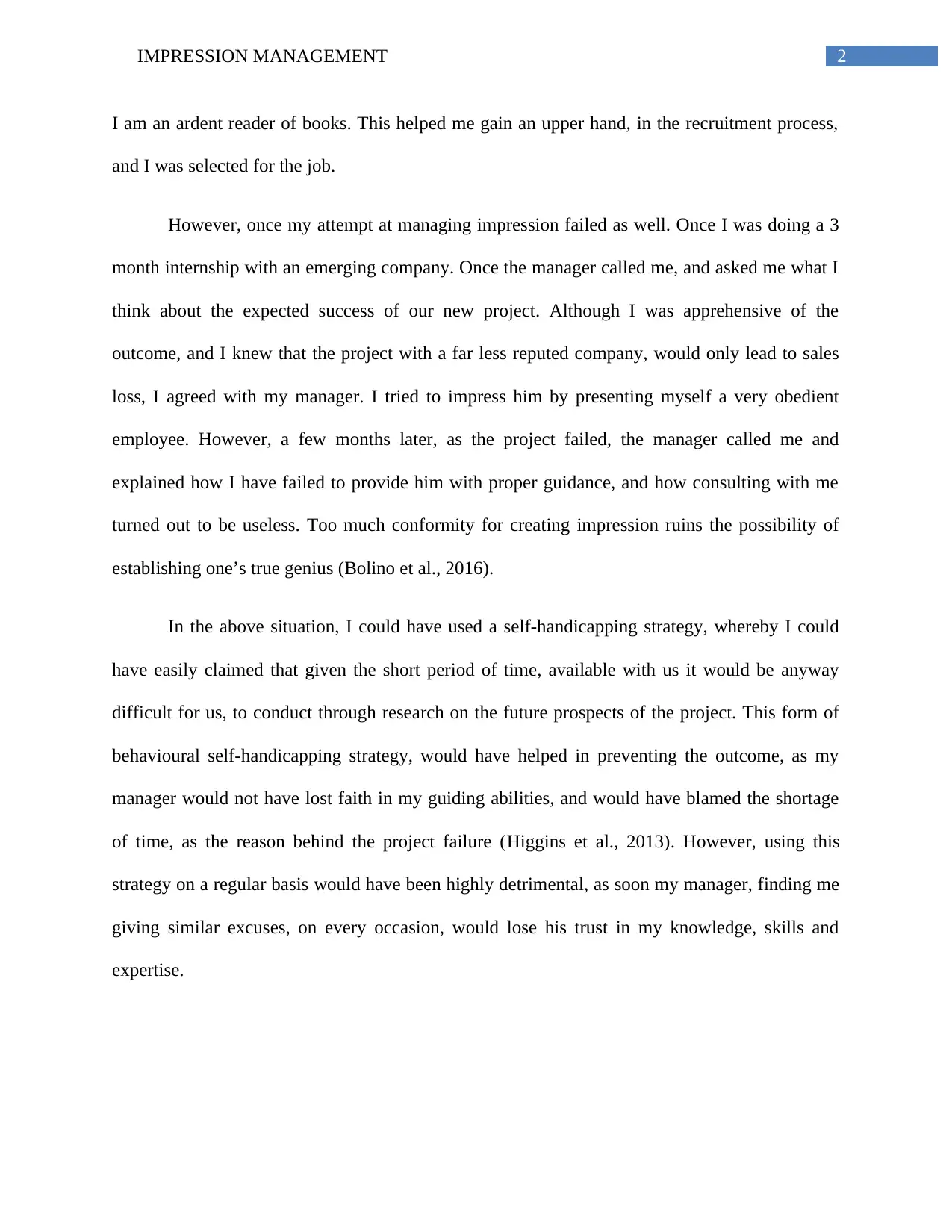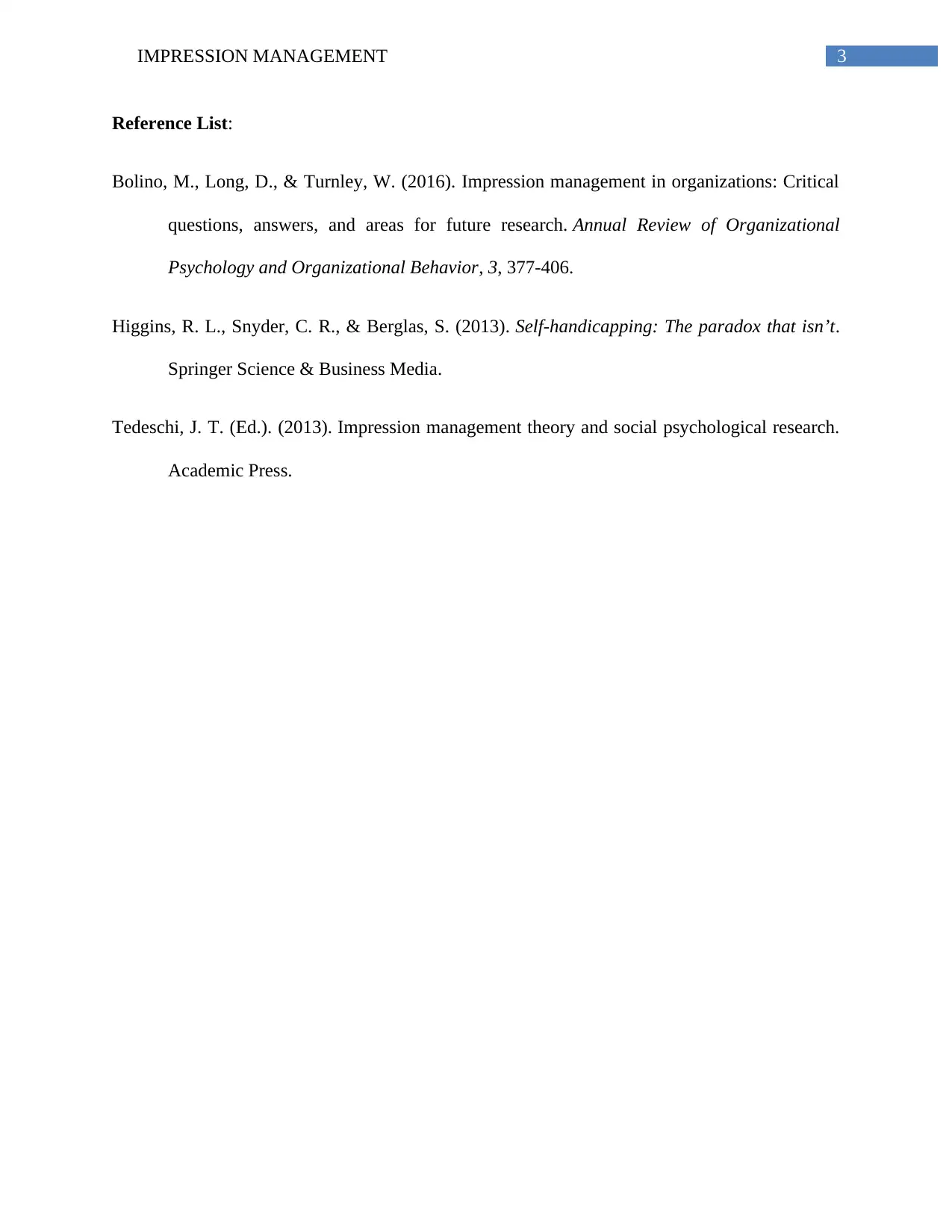Impression Management: A Psychology Essay, Semester 1, University Name
VerifiedAdded on 2020/04/07
|4
|836
|170
Essay
AI Summary
This essay delves into the concept of impression management, exploring how individuals strategically present themselves to influence others' perceptions, particularly within professional contexts. The author discusses scenarios where impression management is employed, such as job interviews and workplace interactions, highlighting the importance of managing one's image to achieve desired outcomes. The essay contrasts these professional settings with personal relationships, emphasizing the need for authenticity and the potential drawbacks of impression management in fostering genuine connections. The author provides examples of successful and unsuccessful attempts at impression management, including the use of a strategic CV and a situation where conformity hindered effective communication. Additionally, the essay introduces the concept of self-handicapping as an alternative strategy to mitigate potential negative outcomes, while acknowledging the potential long-term consequences of its overuse. The essay draws on research from prominent scholars in the field to support its arguments.
1 out of 4











![[object Object]](/_next/static/media/star-bottom.7253800d.svg)